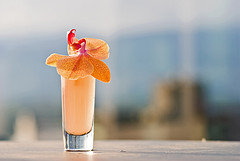 When we think of seasonal marketing, we typically think of the period between Thanksgiving and Christmas. However, businesses need customers throughout the year so it’s important to understand how seasons effect your customers and therefore your sales.
When we think of seasonal marketing, we typically think of the period between Thanksgiving and Christmas. However, businesses need customers throughout the year so it’s important to understand how seasons effect your customers and therefore your sales.
It’s important to follow the advice of Business Coach and Think Productive Productivity Ninja Grace Marshall and her friend Carrie Wilkerson that seasonal marketing involves far more than the traditional gift-giving holidays. It also involves the seasons of the year, client anniversaries, causes of particular importance to you and your particular product cycle. They particularly recommend that you think of the seasons as a cycle, rather than dates on a calendar.
Specifically, marketing for summer should be built around the idea that most people associate summer with recreation, vacations and fun. Your summer displays should be built around bright colors and the long hours of daylight and activity that make summer different for other seasons. Stay open later, if you can, to accommodate evening shoppers, and offer discounts for rainy days, when people are likely to change their plans for outdoor activities.
You should put your summer goods on sale at the beginning of summer and promote sales of summer goods together. For example, sell steaks for grilling together or alongside grills, charcoal, lighter fluid, barbeque sauce. You can discount summer goods if people buy them together: buy sunscreen and a swimsuit together and take 10% of both.
It’s important to remember that traditional gift-giving holidays also fall in summer, including graduation and Father’s Day. Some fathers may be thrilled with a book on night fishing for trout and others, with a new rosebush for the gardens they carefully tend, while graduates may be thrilled with some brilliant sheets or towels for their college dorm or apartment.
When preparing for seasonal marketing, work backwards from your known busy times so you can order inventory and printed material. Plan your budget and consider hiring creative freelancers during the off season to help you plan your campaign. Then hire extra staff during the busy season itself. Allbusiness.com recommends that whenever possible, piggyback your marketing campaigns onto each other and continue to advertise on a reduced scale through your slow season so that your brand is in people’s minds when they are ready to buy.
When, exactly, should you begin planning your summer marketing? It depends on what your business and industry. If you own a local deli or grocery store, it probably won’t make sense to advertise summer specials early in the spring, but you should probably be planning your summer advertising. If you are a local winery or bed-and-breakfast, summer campground or resort, many of your customers plan months in advance. They need to know you exist before and while they are planning their vacations, rather than when they are on them. John Alexander, Co-Director of Training at Search Engine Workshops, recommends that your on-line content should be researched and visited by the search robots at least one month before your busy season. He cites a particular case of beginning Halloween promotions for a costume store in July, rather than the traditional September since by September traffic was spiking by 50 to 60% each week. Certainly, once you stop planning for one particular selling season, you should begin planning the next.
